When it comes to accepting a job resignation, crafting the right letter can set a positive tone for future interactions. It's important to express your appreciation for the employee's contributions and wish them well in their next endeavor. A well-rounded resignation acceptance letter not only reflects professionalism but also maintains a good relationship for potential future collaborations. If you're looking for a template to guide you through this process, keep reading to discover how you can create a thoughtful and impactful message.

Professional tone
A job resignation acceptance letter, typically structured in a professional manner, acknowledges an employee's decision to resign while expressing appreciation for their contributions to the organization. It usually states the last working day, reflects on positive experiences, and offers support during the transition. Clarity, gratitude, and a formal tone are essential elements in crafting this correspondence.
Acknowledgment of resignation
Receiving a job resignation can result in various administrative and emotional tasks within an organization. Acknowledging a resignation letter marks a significant transition point, clearly stating the company's acknowledgment of the employee's intention to leave. This process may begin by confirming the date of the resignation, typically outlined in the letter. Notably, it should address the employee's contributions to the team and organization, fostering a positive atmosphere. For example, if the employee served for several years, their impact on key projects or company culture should be highlighted. The response should also include details about the next steps regarding their departure, including exit interviews or return of company property. Ultimately, expressing gratitude for the employee's service emphasizes the organization's commitment to maintaining positive relationships even beyond the termination of employment.
Expression of appreciation
Receiving a job resignation can mark a significant moment for both the employer and the employee, highlighting their contributions to the company. Expressing appreciation is crucial for maintaining a positive relationship. A resignation acceptance letter should acknowledge the individual's efforts and achievements during their tenure. For instance, an employee who significantly contributed to project milestones or team morale should be recognized specifically. In addition, mentioning future endeavors, such as their next career steps or personal aspirations, can personalize the message and foster goodwill. Closing with an invitation to stay in touch reinforces a lasting professional relationship and acknowledges the mutual respect shared throughout their time together.
Mention of transition process
Accepted job resignations initiate a crucial transition process for both employees and employers. Upon receipt of a resignation letter, a company's Human Resources (HR) department typically outlines a plan to ensure a smooth handover of responsibilities. This process can include finalizing ongoing projects, distributing tasks among remaining team members, and conducting exit interviews. Additionally, specific timelines are established, often within two weeks to a month, depending on the notice period stipulated in the employment contract. In the case of managerial positions, the transition might also involve onboarding and training a successor. Overall, handling a resignation requires careful planning to minimize disruption to the overall workflow and maintain organizational stability.
Well wishes for future endeavors
Accepting a job resignation involves acknowledging the employee's decision graciously while extending best wishes for their future endeavors. When expressing this acceptance, it is essential to emphasize the positive contributions of the employee to the company and the team's appreciation for their efforts. The process typically includes thanking the individual for their dedication, highlighting specific accomplishments during their tenure, and wishing them success in their next chapter of professional life. An appropriate conclusion might include an open invitation for maintaining a professional relationship in the future, reinforcing a sense of camaraderie that continues beyond the workplace. --- This description highlights essential elements of a resignation acceptance while enriching context around the components involved in communication. If you need more specific examples or variations, let me know!

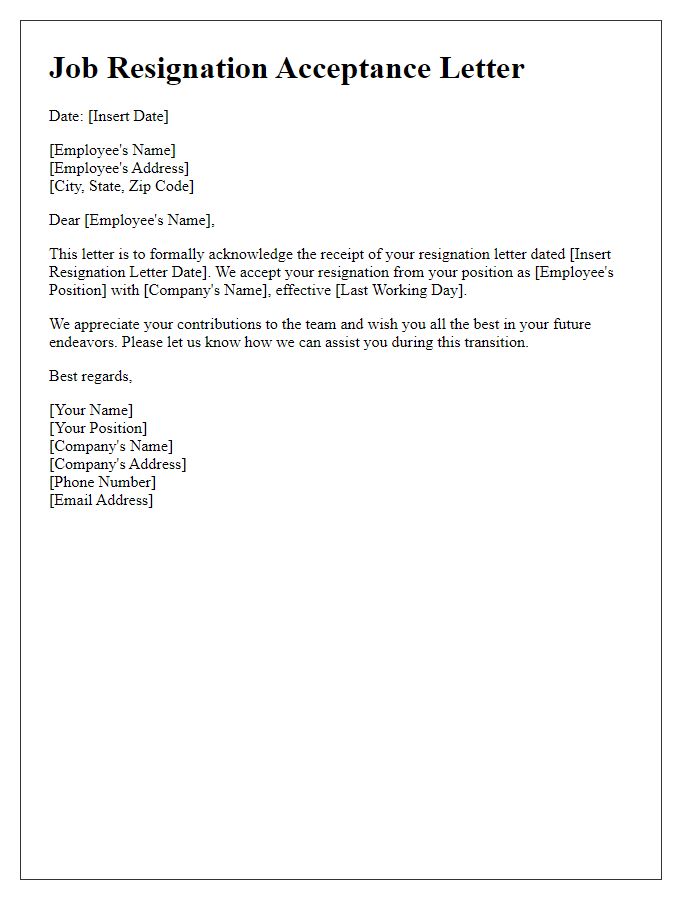
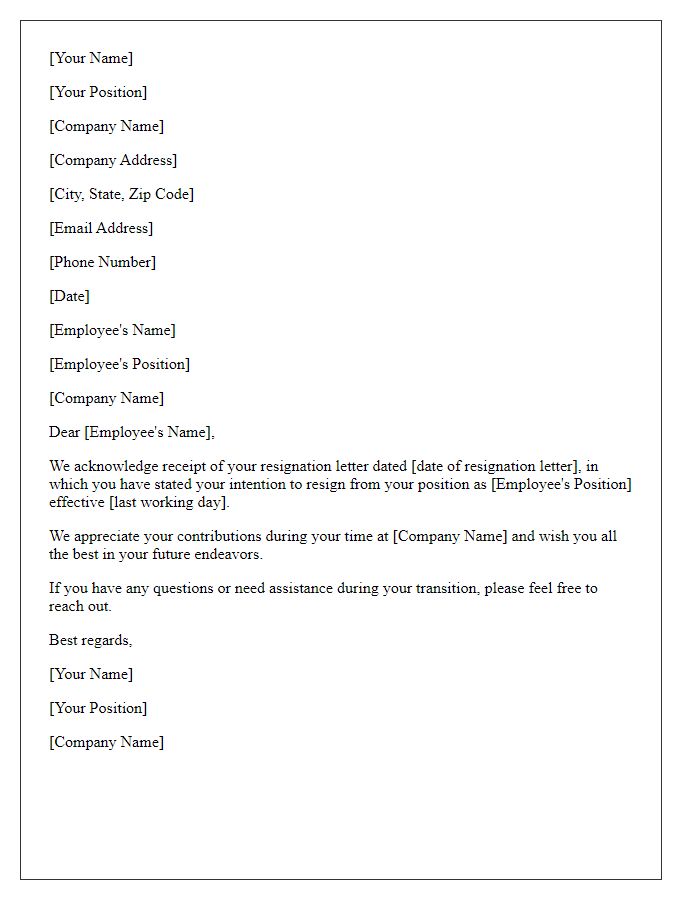
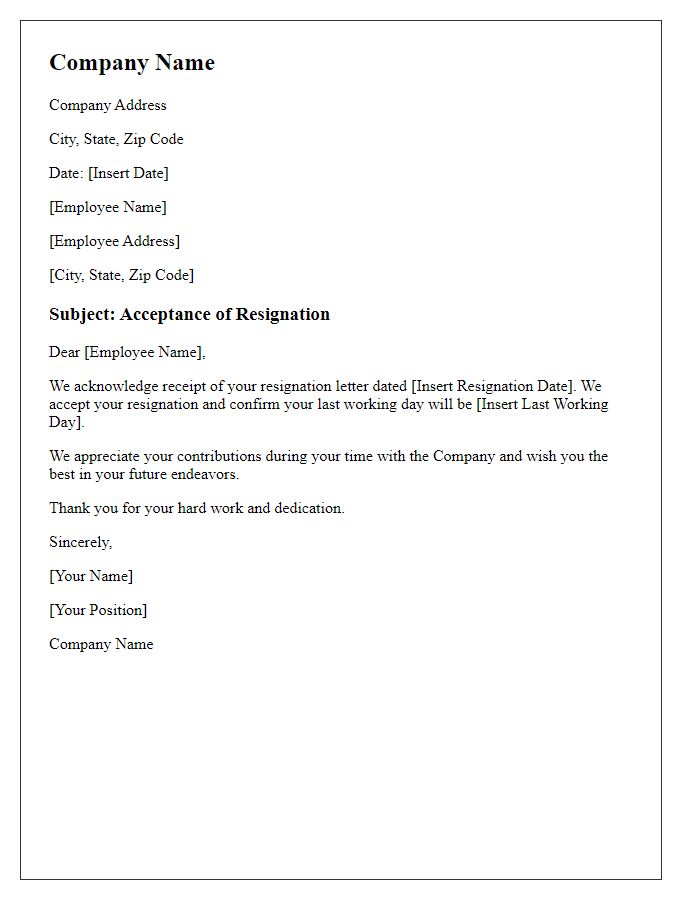
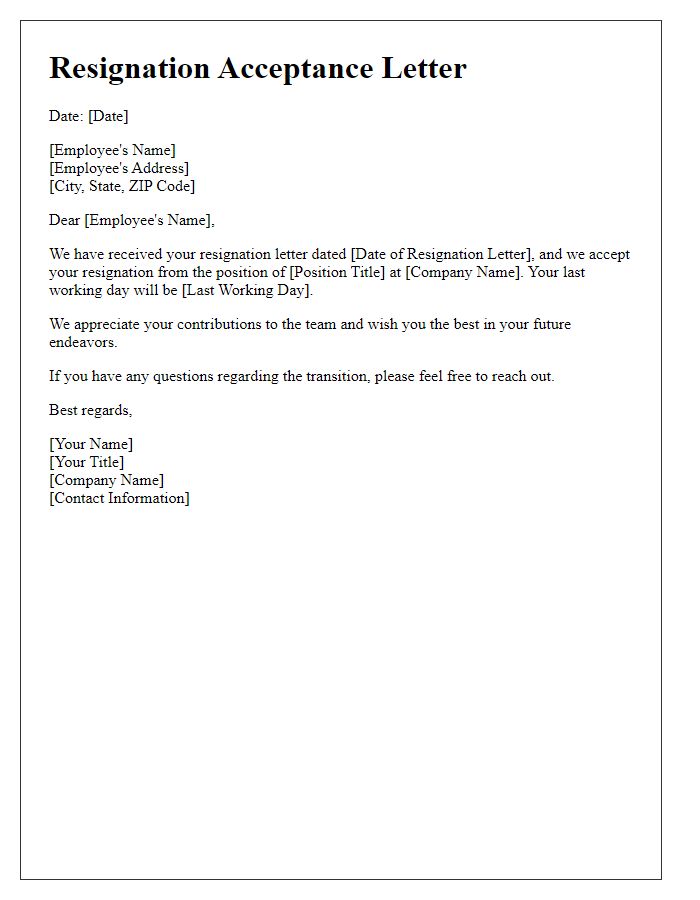
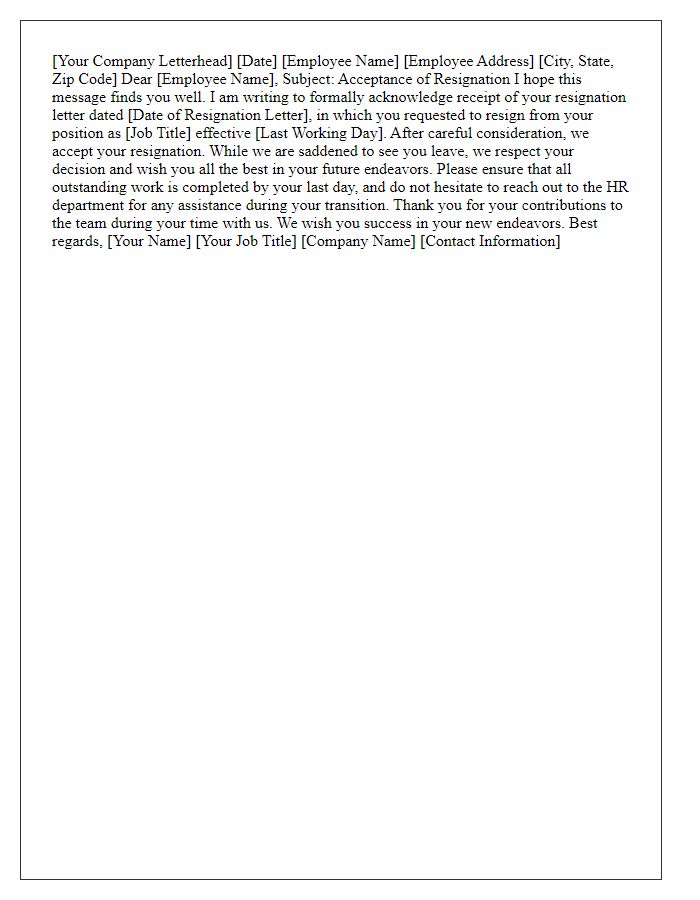
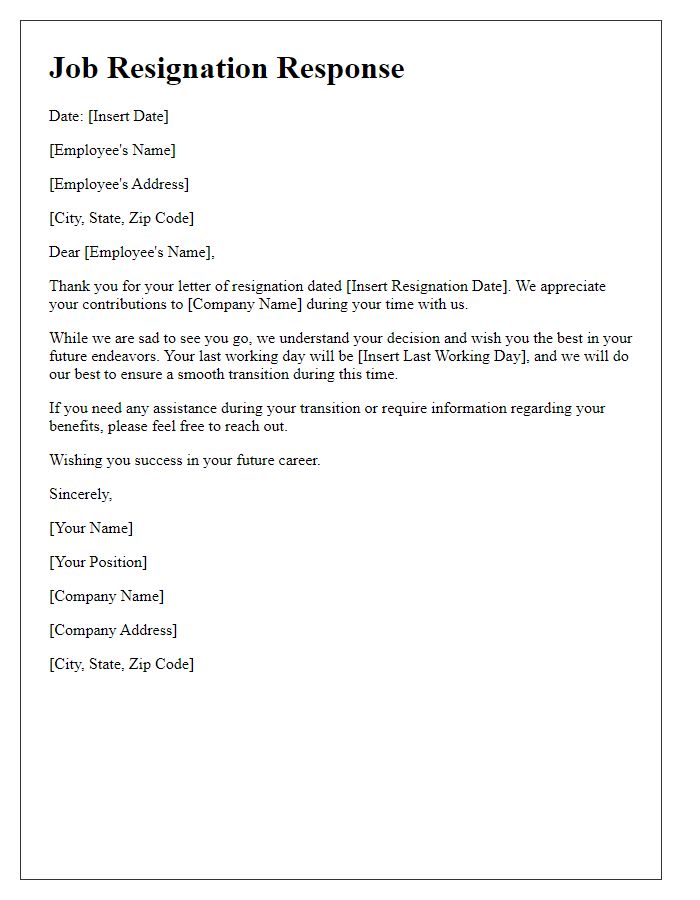
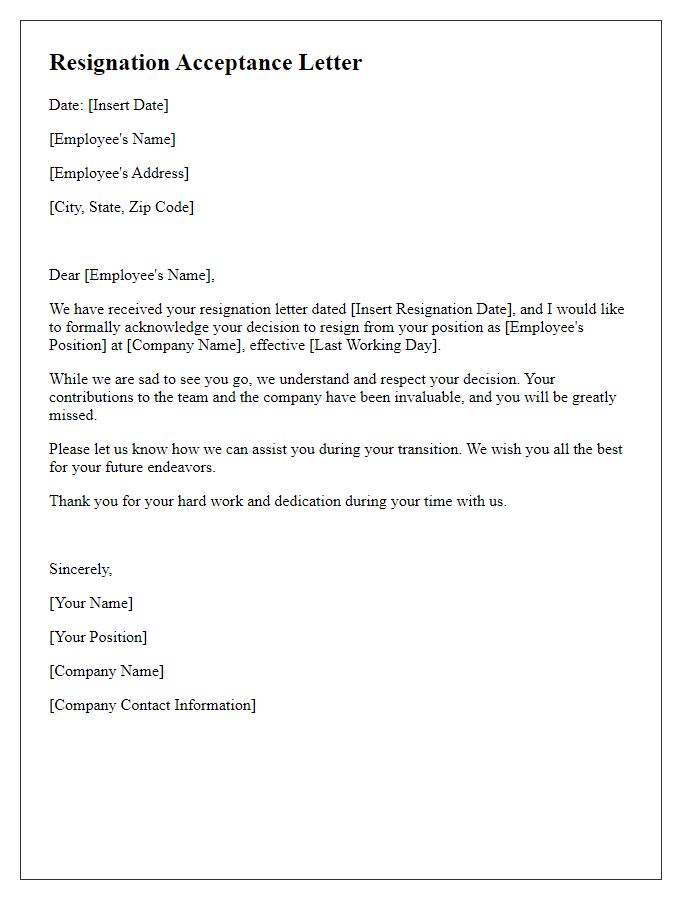
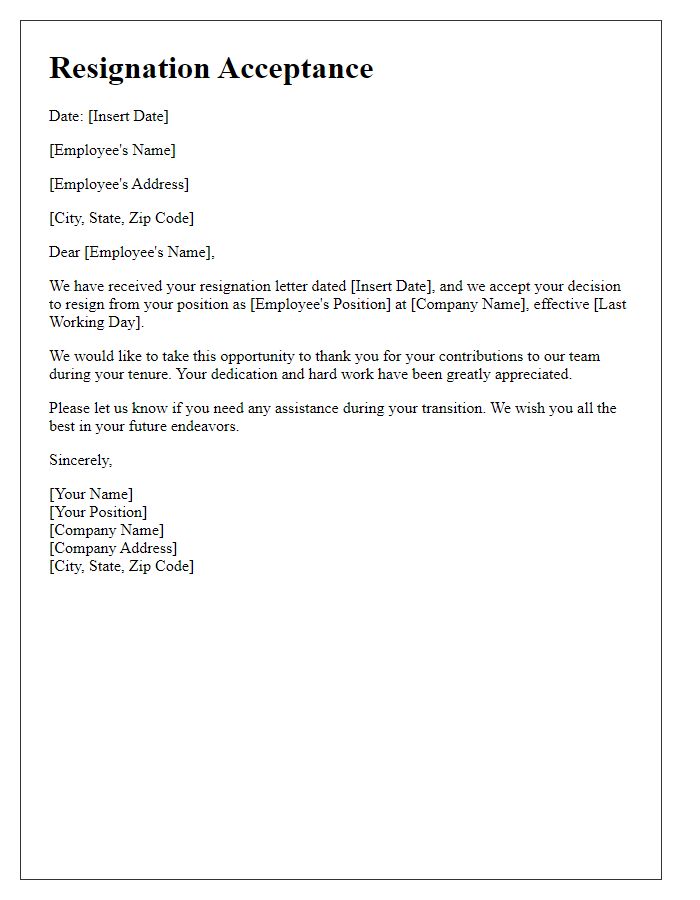
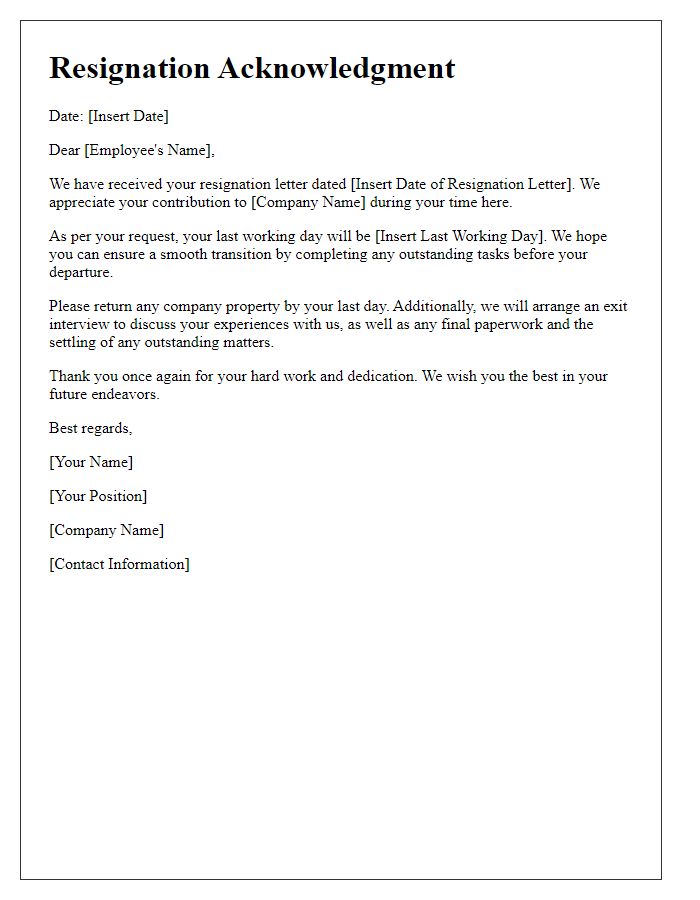
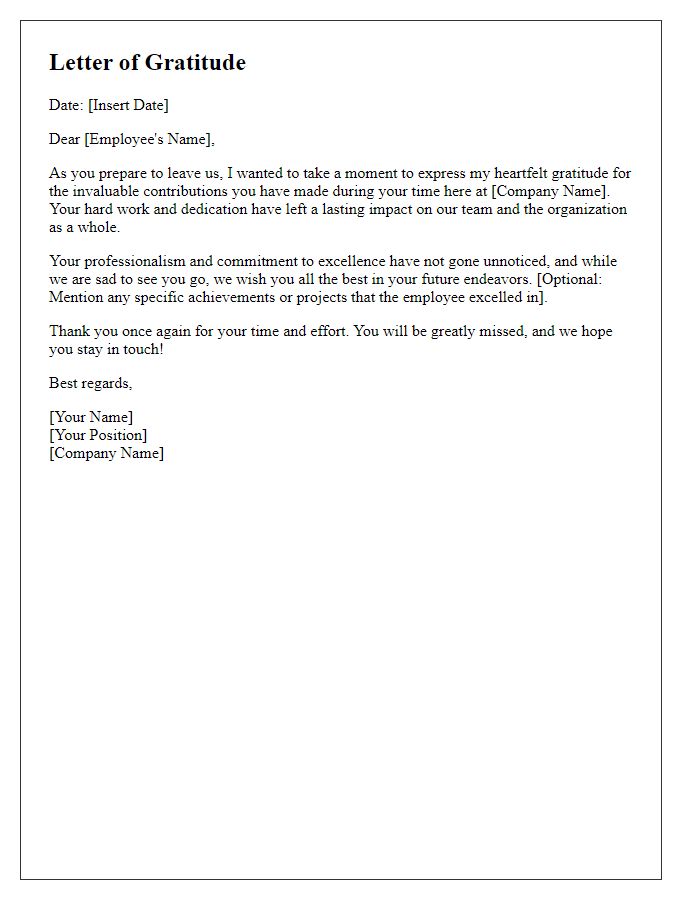


Comments